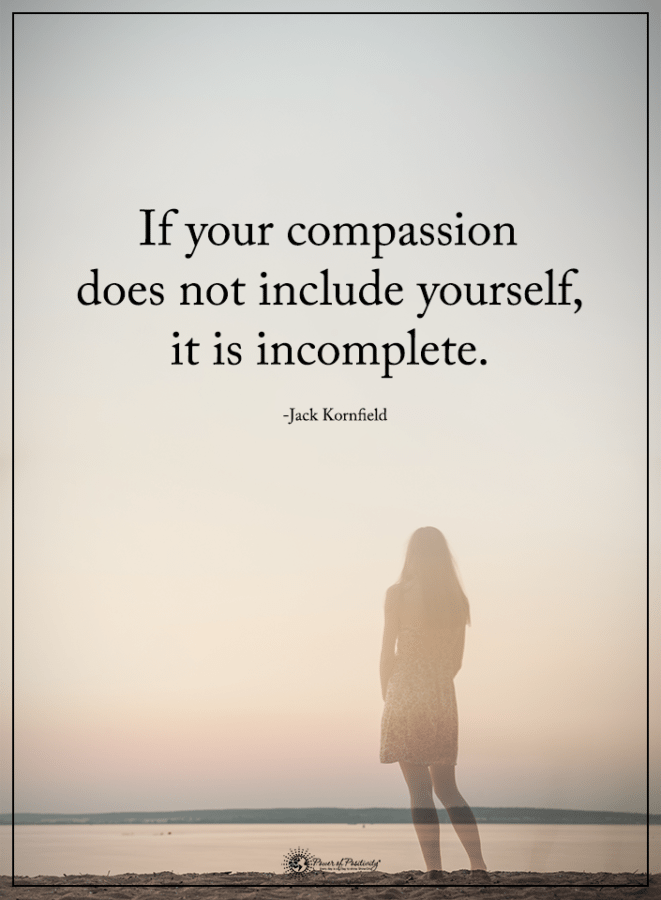Insecurity:
- uncertainty or anxiety about oneself; lack of confidence.
- the state of being open to danger or threat; lack of protection.
~ The Oxford English Dictionaries
Insecurities are something we all have. Similar to any “weakness,” insecurity isn’t something we like admitting or talking about.
Whether our uncertainties stem from money, looks, achievement, or something else, feeling insecure is quite normal – as long as we know how to deal with these feelings.
Allowing insecurities to overwhelm us, however, can negatively affect just about every part of our life.
Including our relationships.
Some seek out relationships because of this insecurity, in hopes that the right partner will bring some semblance of stability and normalcy. Ironically, this desire for the possible security can manifest into its opposite without some due diligence.
How can we prevent insecurity from sabotaging our relationships? Here are six ways:
1. Do some soul searching
If you’re determined to make the relationship work, it’s essential to uncover exactly what’s bothering you. Without this realization, any relationship with be short-lived, unfulfilling, or both.
You must also be willing to acknowledge and work on rectifying your insecurities. We say “work on” because uncovering (if needed) and resolving deeply-rooted insecurities is a process.
Take some time to sit down, alone, and think about things. It may be a wise idea to get a journal where you can write down thoughts as they arise. It’s likely some behavioral thought patterns will emerge.
Another good idea is to consider talking to someone close to you. When it’s their turn to speak, listen attentively. While what they say may not be what you necessarily want to hear, understanding the problem from someone else’s perspective could help tremendously.
2. Understand your worth
Insecurity often causes us to focus solely on individual attributes we feel are lacking. If your partner accepts you for who you are – that which makes you lovingly unique – why overly concern yourself with perceived weaknesses?
The answer isn’t so simplistic, of course.
If we’re in an emotional funk (hey, it happens!), ask someone who loves you. Is this a deliberate attempt to boost your ego? Not from their perspective. You’re seeking honest feedback about the things that endear you to them.
It’s vital – for both individual and relational well-being – to remind yourself of the constituents that make up your self-worth.
3. Boost your self-esteem
Research shows that people with more relationship insecurities possess a lower self-esteem.
It’s human nature to seek external validation when we’re insecure. While this may be okay with friends and loved ones, it may be a bit disconcerting for your partner under certain conditions.
Building up self-esteem, while regularly viewed as very difficult, isn’t actually all that hard.
Make it a habit to practice mindfulness meditation. Even 10 to 15 minutes of (deliberate) daily meditative practice will help quiet your inner critic, bring forth self-compassion, and – perhaps most importantly – instill a much-needed sense of acceptance.
4. Be honest
Once you’ve figured out what you personal insecurity is, it’s time to have a conversation with your partner. Too often in relationships, repressed feelings manifest into superfluous arguing and bickering.
Remember the epic scene in Jerry Maguire when Tom Cruise’s character repeatedly pleads with Cuba Gooding, Jr’s? “Help me, help you!!”
Those four words have been repeated many times since that movie came out, and are indeed applicable in this situation.
It isn’t fair to keep your partner in the dark. And if you’re worried about being rejected or looking down upon, do it anyways. If your partner acts unsupportive or judgmental in any way, the relationship may not be worth it.
5. Fix what’s broken
Waiting for when you “feel like” doing something is never a good idea. No matter if this “something” is losing weight, quitting smoking, overcoming shyness, studying harder, whatever, procrastination always follows a Bell Curve (an upside-down ‘U’).
Let’s say ‘discomfort’ is on the Y-axis (vertical) and ‘time’ on the X-axis. As time moves on, the slope of the Bell curve sharply elevates along the Y-axis. After an action is taken – say at the midway point of the Curve – discomfort drops precipitously.
In short, take action, maintain momentum, and you’ll feel relieved.
6. Seek professional help
If insecurities are affecting your physical or mental health, it may be worthwhile to look into speaking with a professional. Consider talking to a counselor, therapist, or someone else who specializes in the area(s) with which you’re struggling.
Here again, it’s important to be honest with your partner if the decision impacts him or her. Also, be sure to pay attention to their reaction.














 Community
Community

